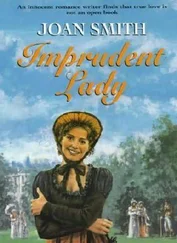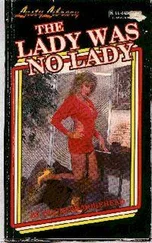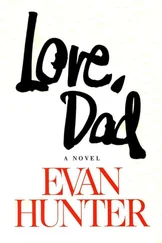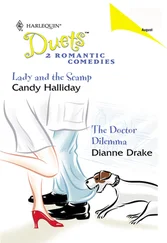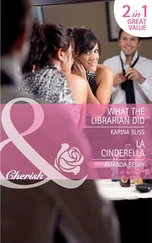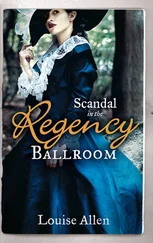“Yes, I... I speak to her.”
“When did you speak to her last, Mrs. Glennon?”
“I... I’m very tired now. I’d like to rest.”
“Certainly. When did you speak to her last?”
“Yesterday,” Mrs. Glennon said, and she sighed deeply.
“I see. Thank you, Mrs. Glennon, you’ve been very helpful. Shall I get you that milk? It’s probably warm enough by now.”
“Would you?”
Meyer went into the kitchen. The stove was set alongside a cabinet and a wall. A small cork bulletin board was nailed to the wall. A telephone rested on the cabinet. He took the pot of milk from the stove just as it was ready to over-boil. He poured a cupful and then called, “Do you want a lump of butter in this?”
“Yes, please.”
He opened the refrigerator, took out the butter dish, found a knife in the cabinet drawer, and was slicing off a square when he saw the hand-lettered note pinned to the bulletin board. The note read:
CLAIRE
SATURDAY
271 SOUTH 1ST STREET
He nodded once, briefly, silently copied the address into his pad, and then carried the buttered milk to Mrs. Glennon. She thanked him for his kindness, asked him again not to bother her sister, and then began sipping at the cup.
Meyer left the apartment, wondering why Mrs. Glennon had lied to him. He was still wondering about it when he reached the first-floor landing.
The attack came swiftly and silently.
He was totally unprepared for it. The fist came flying out of the darkness as he turned the bend in the banister. It struck him on the bridge of his nose. He whirled to face his attacker, reaching for his holstered revolver at the same moment, and suddenly he was struck from behind with something harder than a fist, something that collided with the base of his skull and sent a fleeting wave of blackness across his eyes. He pulled the gun quickly and easily, something else hit him, there were more than two people, again he was struck, he heard his own revolver going off, but he had no knowledge of pulling the trigger. Something dropped to the floor with a clanging metallic sound, they were using pipes, he felt blood trickling into his eye, a pipe lashed out of the neardarkness, striking his mouth, he felt the gun dropping from his hand, felt himself falling to his knees under the steady silent onslaught of the unrelenting lead pipes.
He heard footsteps, a thousand footsteps, running over him and past him and down the steps, thundering, thundering. He did not lose consciousness. With his face pressed to the rough wooden floor, with the taste of his own blood in his mouth, he idly wondered why private eyes always swam down, down, down, into a pool of blackness, wondered idly why Mrs. Glennon had lied to him, wondered why he’d been beaten, wondered where his gun was, and groped for it blindly, his fingers sticky with blood. He crawled toward the steps.
He found the top step and then hurtled headlong down the flight, tumbling, crashing into the banister, cutting his bald scalp on the sharp edge of one of the risers, his legs and arms twisted ludicrously as he rolled and bounced to the ground-floor landing. He could see a bright rectangle of light where the vestibule door was opened to the street outside. He spit blood and crawled through the dim vestibule and onto the front stoop, dripping a trail of blood behind him, blinking blood out of his eyes, his nose running blood, his lips running blood.
He half crawled, half dragged himself down the low flight of steps and onto the sidewalk. He tried to raise himself on one elbow, tried to call out to anyone in the street.
No one stopped to assist him.
This was a neighborhood where you survived by minding your own business.
Ten minutes later a patrolman found him on the sidewalk, where he had swum down, down, down, into that pool of blackness.
The sign outside the garage read BODY AND FENDER WORK, EXPERT PAINTING AND RETOUCHING. The owner of the garage was a man named Fred Batista, and he came out to gas up Brown’s unmarked sedan only to learn that Brown was a detective who had come to ask questions. He seemed to enjoy the idea. He asked Brown to park the car over near the air pump and then invited him into the small garage office. Batista needed a shave, and he was wearing grease-covered overalls, but there was a twinkle in his eyes as he and Brown went through the questioning routine. Maybe he’d never seen a cop up close before. Or maybe business was bad and he was glad for a break in the monotony. Whatever the reason, he answered Brown’s questions with verve and enthusiasm.
“Joe Wechsler?” he said. “Why, sure, I knew him. He’s got a little hardware store right down the street. Many’s the time we run over there when we needed a tool or something. A fine man, Joe was. And a terrible thing what happened to him in the bookstore.” Batista nodded. “I know Marty Fennerman, too — guy who runs the store. He had a holdup there once, you know that? Did he tell you that?”
“Yes, sir, he told us,” Brown said.
“Sure, I remember, musta been seven, eight years ago. Sure. You want a cigar?”
“No, thank you, Mr. Batista.”
“You don’t like cigars?” Batista said, offended.
“Yes, I do,” Brown said. “But I don’t like to smoke them in the morning.”
“Why not? Morning, afternoon, what’s the difference?”
“Well, I usually have one after lunch and another after dinner.”
“You mind if I smoke one?” Batista asked.
“Go right ahead.”
Batista nodded and spit the end of the cigar into a barrel of soiled rags near his scarred desk. He lighted the cigar, blew out a great stream of smoke, said “Ahhhhhh,” and then leaned back in his ancient swivel chair.
“I understand Mr. Wechsler had some work done by you a little while before the shooting, is that right, Mr. Batista?”
“That’s right,” Batista said. “A hundred percent.”
“What kind of work?”
“A paint job.”
“Did you do the job personally?”
“No, no. My body and fender man did it. It wasn’t such a big job. Some nut hit Joe while he was parked on the street in front of his store. So he brung the car in here and I—”
“The car was hit?”
“Yeah. But nothing big. You know, just a scratched fender, like that. Buddy took care of it.”
“Buddy?”
“Yeah, my body and fender man.”
“Who paid for the job? Mr. Wechsler or the man who hit him?”
“Well, truth is, nobody paid for it yet. I just billed Joe last week. ‘Course, I didn’t know he was gonna get killed. Listen, I can wait for my money. His wife’s got enough grief right now.”
“But it was Mr. Wechsler you billed?”
“Yeah. Joe didn’t know who hit him. Like, you know, he come back from lunch one day, and there was this big scratch in the fender. So he brung the car in here, and we took care of it. Buddy’s a good man. Only been with me a month or so, but much better than the last guy I had.”
“I wonder if I could talk to him.”
“Sure, go right ahead. He’s in back. He’s working on a ‘56 Ford. You can’t miss him.”
“What’s his last name?”
“Manners. Buddy Manners.”
“Thanks,” Brown said. He excused himself and walked to the back of the garage.
A tall, muscular man in paint-stained coveralls was spraying the side of a blue Ford convertible. He looked up as Brown approached, decided Brown was no one he knew, and went back to work.
“Mr. Manners?” Brown asked.
Manners cut off the spray gun and looked up inquisitively. “Yeah?”
“I’m from the police,” Brown said. “I wonder if I could ask you a few questions.”
“Police?” Manners said. He shrugged. “Sure, go right ahead.”
Читать дальше
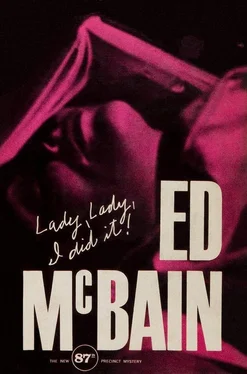
![Дэвид Лоуренс - Lady Chatterley's Lover [С англо-русским словарем]](/books/26613/devid-lourens-lady-chatterley-s-lover-s-anglo-thumb.webp)
